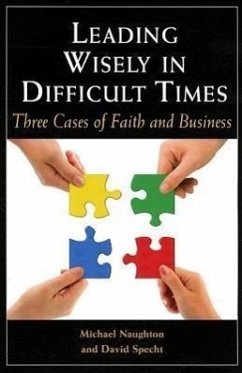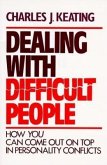It is said that "he who tells the story defines the culture." The three stories within this book are of business leaders who are trying to live faithfully in difficult times--times that are extremely competitive, complicated, globalized, and secular. At the heart of these stories are servant leaders who desire to see things whole. They are not motivated simply by wealth maximization, or enlightened self-interest, or some abstract social contract as often indicated by economic and management literature and textbooks. Their faith has created a much larger world for them. Their world is one where God is at work, and where their individual interests and desires are not the final word. These are not stories of perfection, of people without blemish, but of leaders who are saints under construction. This kind of story of faith and business is too often untold. Most business cases ignore the element of religious faith. They fail to take it seriously as part of a leader's moral vision. The leaders and founders of the companies in this book were nurtured in a culture in which a good life involved more than one person. The cultural institutions they were formed in, particularly the family, education and the church, instilled in them a theological vision out of which a moral orientation was developed. This moral vision caused these leaders to question their own individual self-interest and utility-maximizing inclinations, and seek to order their own good toward others. Each of the stories within the book has two major dimensions. The first is the case itself that presents the reader with a short description of a dilemma perplexing the leader, along with some background material on the leader and the company. The second dimension is an extended theological reflection after each case. The point of this chapter is not to simply provide answers to the case, but to bring the reader into deeper reflection of the significance of human action in business. +
Hinweis: Dieser Artikel kann nur an eine deutsche Lieferadresse ausgeliefert werden.
Hinweis: Dieser Artikel kann nur an eine deutsche Lieferadresse ausgeliefert werden.








